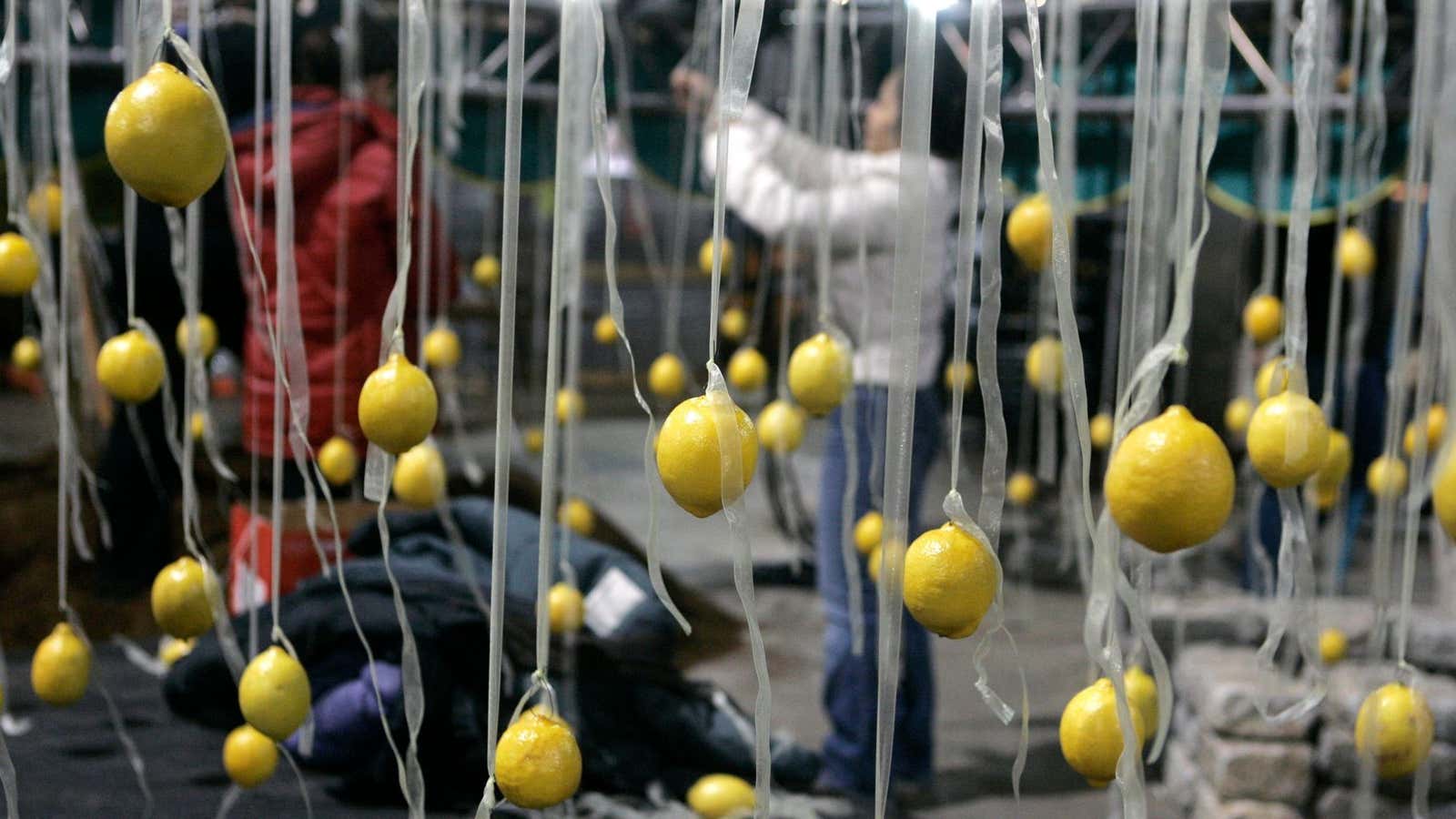Lemonade stands are the ultimate symbol of American entrepreneurship. They represent both the ingenuity and free-market mindset of this country’s young people. They’re even recommended by doctors as a way to get kids outdoors and exercising their imagination.
But this tradition, once the hallmark of many American summers, is increasingly at risk. Just last week (May 30), police officers in Denver, Colorado, shut down a young boy’s lemonade stand, which was raising money for charity, because the boy didn’t have a $125-a-day permit. In 2015, police in Overton, Texas, shut down a lemonade stand run by Andria Green, 8, and her sister Zoey, 7, because the two girls lacked a “peddler’s permit,” which costs $150—leading one commentator to conclude, “When life gives you lemons—quick, hide them from the cops!” And in June 2011, during the US Open golf tournament, officials in Montgomery County, Maryland, fined kids $500 each for their lemonade stand (the fine was later rescinded).
It’s not just happening in the US: A 5-year-old was fined in London last summer for her permit-less lemonade stand. And there’s no reason to believe the crackdowns will stop this summer. That’s why this year, Country Time lemonade is launching a new initiative, dubbed “Legal-Ade,” that will help lemonade stand owners deal with permit issues. The “Legal-Ade” team will reimburse the cost of the fine or permit up to $300, up to a total limit of $60,000.
Why lemonade stands are good for kids
The lemonade stand is often a child’s first foray into business. It helps kids understand the value of money—how to earn it, and why it’s important to have it. Lemonade stands also let kids exercise their creativity by making posters or turning their stands into games—something that helps kids develop professional skills, do better in school, and improve cognitive function.
It’s also a great opportunity for parents to encourage kids to donate to charity: The Alex’s Lemonade Stand Foundation, for example, allows kids to register lemonade stands through their websites and donate the proceeds to the foundation, which invests it into research for new treatments and cures for children battling cancer. Over the years, the foundation says it has raised over $150 million and funded more than 800 research projects for this worthy cause.
Country Time’s initiative might very well be more of a publicity stunt than anything else. But in supporting lemonade stands, the company is telling kids that their childhoods don’t have to always be regulated and fined. And they’re teaching kids that, “when life gives you arcane laws, make lemonade.”
